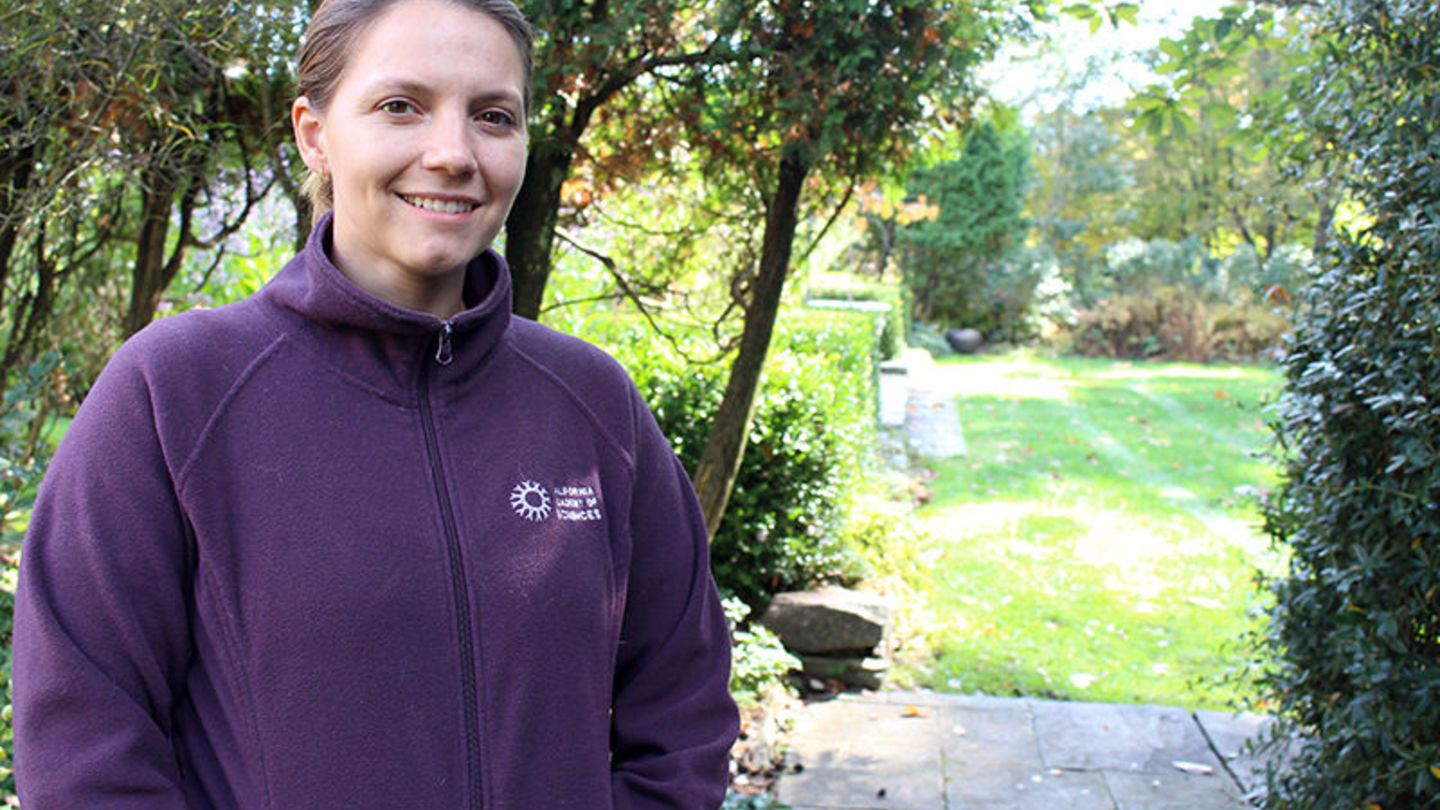
Cat Meholic, the newest addition to the Temple University Ambler community, believes that there was no one "Ah ha!" moment that instilled in her a passion for plants.
"I've wondered about that sometimes. I have three sisters and I'm definitely 'the plant one,'" laughed Meholic, who recently joined the Ambler Arboretum of Temple University staff as the Curatorial Horticulturist. "I think initially it came from the people I encountered who took an interest in me. They had a great impact on my perspective on plants, on horticulture as an art and science — indoors and outdoors — and just how much technology is used in the field today. I always feel good at the end of the day when I've been working with plants."
Meholic can look forward to many good days ahead as she splits her time between curation and routine garden management within the Ambler Arboretum. The Curatorial Horticulturist — a new position within the Arboretum — performs a critical function as the registrar of the plant collections, coordinating documentation from the point of acquisition through installation. Additionally, the position is responsible for evaluating accessions — additions to the collections — documenting their health and status in the garden and their effectiveness towards fulfilling the scope of the collections.
"I once told the person I was working for at the time that I never wanted to be involved in plant records but the more I learned about it and the more I got hands-on with it the more I realized that a garden with no records is just a collection of pretty plants," she said. "If you want to tell the story and the history of a place, study its gardens. You need good records in order to do that."
Meholic completed her master's degree in Plant Science in August at the University of Delaware, where she also completed her undergraduate degree in Public Horticulture. The focus of her master's programs was on "Living Collection's Management." While at the University of Delaware, she completed an assistantship as assistant curator in addition to teaching courses in woody plant identification and soil science. Meholic also honed her skills as the Plant Recorder and Assistant Curator at Mt. Cuba Center in Hockessin, Delaware.
"I started to really understand the potential and necessity for comprehensive databases and the idea of institutional knowledge — if an institution doesn't know what it has in its collections, then it essentially doesn't exist," she said. "The plant world moves so quickly, you need an accessible, accurate, thorough record of the gardens — what plants are where, what is the history behind them."
While getting hands-on in the field at Mt. Cuba Center, Meholic said she "learned to love native plants."
"Native plants will save the world. One of my personal goals in this new role at the Ambler Arboretum is to assist in getting a system in place where the records of the collections that we have on campus can be easily made available for study and research," she said. "For example, you can study climate change by recording when a plant flowers from year to year — if you don't have that information available, that opportunity is lost. I think one of the special traits about the Ambler Arboretum is how much student and faculty involvement there is in the gardens; they are aware of the resources that are available to them just by walking outside."
Meholic has a personal dedication to the field of horticulture and championing women in the industry. She co-founded the Delaware Valley Women in Horticulture group in June 2016.
"After a few years of attending conferences, it became clear that they are an expense that not everyone can afford. I also came to realize that horticulture is a good field in terms of gender equity, but it's still lacking overall," she said. "Our goal was a to create a group that could offer free or low cost educational, networking and professional training opportunities."
It was through Women in Horticulture that Meholic met and worked with Ambler Arboretum Director Kathy Salisbury.
"The more she described the Curatorial Horticulturist position the more I realized it was my dream job," she said. "With a focus on native and non-native plant education, a group of dedicated volunteers, wonderful student engagement, the history the Pennsylvania School of Horticulture for Women and richly diverse plant collections, I knew I wanted to be a part of it."
Meholic doesn't hang up her plant-inventorying hat when she goes home. It's easy enough to pursue such an interest when you happen to live on the 500-acre Granogue property — a DuPont family estate — in Delaware.
"I rent a little cottage; my neighbors are cows. I walk my dogs each day and one day I just started making lists of the plants I was encountering — I feel it's very important to understand the plants that make up your environment," she said. "That became a project to catalog the flora of Granogue. I've made notes on hundreds of plants and I've barely scratched the surface!"
About those dogs. Meholic happily admits to a dog obsession rivaling her passion for plants. Her constant companions — a 10-year-old Yorkshire Terrier, a five-year-old beagle and a 20-month-old ball of pure energy shaped like a German Shepherd Blue Heeler mix — are all rescues, Meholic said, "and all have great tricks but limited manners."
